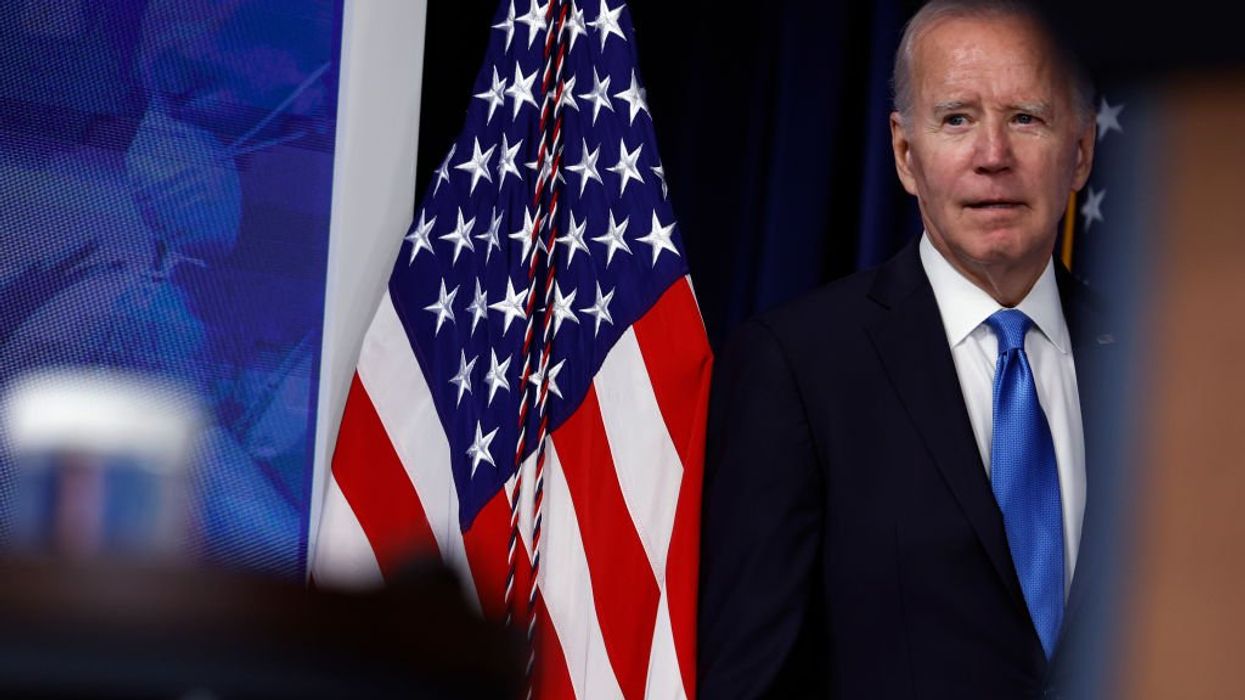
Anna Moneymaker/Getty Images

The Foundation for Government Accountability is right: Democracy dies in a cubicle. Why, then, is Joe Biden’s Office of Personnel Management attempting to build a record number of federal offices in real time?
The OPM is the epicenter of the federal bureaucracy. It manages and oversees the more than 2 million workers in the U.S. government. Regrettably, the Biden administration wants it to grow even larger.
At a recent technology “power breakfast,” John Gill, the OPM’s executive director of “human capital data management and modernization,” explained the agency’s desire to leverage its data as a “strategic asset.” Put differently, the OPM wants to take more power away from the private sector and add it to the federal government’s bureaucratic vortex.
Gill’s statement follows senior OPM adviser Steve Krauss’ January declaration that the agency is taking steps to “standardize human capital functions across agencies.” As Institute for Liberty President Andrew Langer noted at the time, this is “just fancy Washington, D.C., lingo for saying that he wants to put D.C.’s federal bureaucracy on steroids.”
The government is already 2 million people too big. It doesn’t need to grow any larger.
Bigger doesn’t mean better. It means more bloated. Whenever bureaucracies grow, they become less manageable.
The Cato Institute’s Chris Edwards made this case in a study titled “Why the Federal Government Fails.” “Even if politicians worked diligently to advance the general interest, and even if federal bureaucracies focused on delivering quality services,” Edwards wrote, “the vast size of the government would still generate failure after failure.”
The OPM proves Edwards’ point beautifully. That’s why, in 2015, it suffered one of the worst data breaches in U.S. history, and, like other agencies, it remains wildly behind the curve in protecting Americans’ sensitive information. That’s also why, according to the Government Accountability Office, the OPM has doled out upwards of $1 billion in annual taxpayer-financed health benefits to ineligible participants.
The federal bureaucracy has been far too big for far too long. Contrary to what Biden and his handlers desire, it must shrink, not grow.
Private companies could handle many of the OPM’s functions. They are already equipped to hire on the federal government’s behalf and take on its current human capital management responsibilities. The Biden administration just needs to get out of the way.
House Oversight Committee Chairman James Comer (R-Ky.) recently made this case in a congressional hearing. He criticized the OPM for being both the regulator and provider of federal talent acquisitions — a conflict of interest that Comer noted incentivizes the agency to continue growing the size and scope of the federal bureaucracy. Comer vowed that he and the Republicans on his committee would fight the Biden administration’s plans to expand the administrative state tooth and nail.
Good. The health of our republic wanes with each new breath the Biden administration gives the bureaucracy. No issue is more critical to the nation’s long-term trajectory than this one, so here’s hoping House Republicans keep up the pressure. Preserving the principles of free enterprise and limited government is always worth the battle.
Elijah J. Henry is a U.S. Army veteran and freelance political writer.
Elijah J. Henry